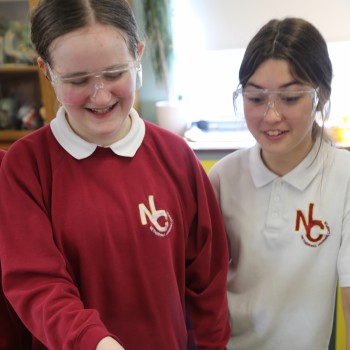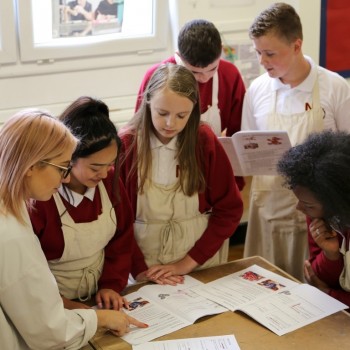Combined Science: Trilogy
| Core subject | AQA |
|---|
 Pupils study the science course over Y9, 10 an 11. At the end of the course they receive 2 GCSE grades from 1 to 9.
Pupils study the science course over Y9, 10 an 11. At the end of the course they receive 2 GCSE grades from 1 to 9.
Our philosophy: Science for all!
We believe that science has something to offer every student, whatever their aspirations.
From trainee chef to nuclear physicist, construction apprentice to cancer researcher, everyone needs some level of relevant Science understanding.
Practical is at the heart of science
There's no better way to learn about Science than through purposeful practical activities that form a natural part of day to day teaching and learning. The new science GCSE has a series of investigations that pupils can be questioned about in the final exam. Pupils will keep a log of all their investigative work in their investigative workbook.
List of studies units:
Biology
- Cell Biology
- Organisation
- Infection and Response
- Bioenergetics
- Homeostasis and Response
- Inheritance, Variation and Evolution
- Ecology
Chemistry
- Atomic Structure and the Periodic Table
- Bonding, Structure, and the Properties of Matter
- Quantitative Chemistry
- Chemical Changes
- Energy Changes
- The Rate and Extent of Chemical Change
- Organic Chemistry
- Chemical Analysis
- Chemistry of the Atmosphere
- Using Resources
Physics
- Forces
- Energy
- Waves
- Electricity
- Magnetism and Electromagnetism
- Particle Model of Matter
- Atomic Structure
Exams
2 Exams in Year 10
2 Exams in Y11
2 Papers per GCSE:
Combined mark for both.
Duration: all the papers are 1 hour 45 minutes long.
Tiers: Foundation and Higher.
Weighting: the papers are equally weighted.
Question types: multiple choice, structured, closed, short answer and open response.


 Welcome from the Principal
Welcome from the Principal


